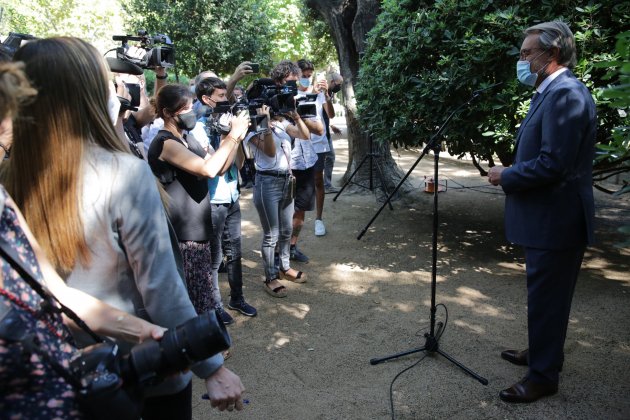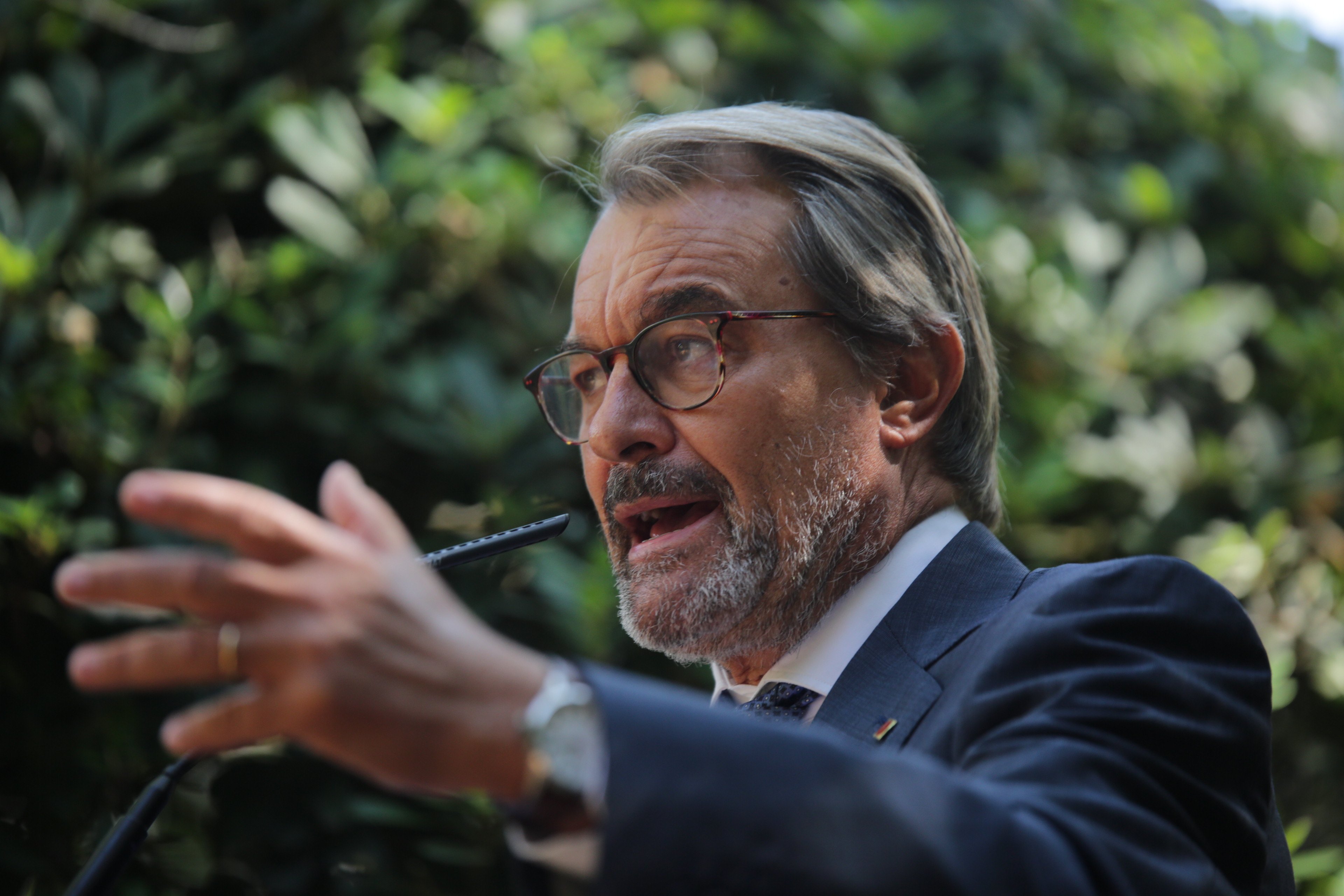Artur Mas has broken his silence. The former Catalan president and founding leader of the Catalan European Democrat Party (PDeCAT) today explained the reasons why he has decided to continue in the PDeCAT and not to join Carles Puigdemont's new party, Junts per Catalunya (Together for Catalonia, JxCat). He said that he believes that JxCat is also "his space" but that, after a political career committed to "adding more" and integration, he does not want to end his career "in a project that leads to separation" between acronyms.
However, he emphasized that he will not do anything that could be interpreted as a confrontation with Puigdemont. "I still have enough sense of the project and the country to not facilitate what many would like, both internal and external adversaries, which is a fight with Puigdemont," he explained at a press conference in the gardens of Barcelona's Palau Robert where the ex-president has his office.
Mas, who in recent days has addressed this issue with both Puigdemont and the current PDeCAT leader David Bonvehí, has said he has no intention of participating in the electoral dynamics of the parties, although he has not ruled out commenting on policies if he deems it appropriate.
"Sad, disappointed, angry"
The Catalan leader who first set the target of an independence referendum in 2012 has declared himself “sad, disappointed and angry” at the open schism between the two forces he helped build, and affirmed that he wished to work to rebuild the unity of that political space. "If there is no unity in the sovereignty project, no one will take us seriously," he warned.
Artur Mas explains his position on JxCat and PDeCAT, in the gardens of the Palau Robert.
He asserted that among the objectives behind the creation of PDeCAT was the will to be above the classic struggle between right and left - "a useless struggle and one that doesn't lead us anywhere," he warned. “After 30 years of working on projects that were always looking to "add more" and integrate and achieving that, I can’t now finish my career on a project that could lead to a separation,” he repeatedly argued.
"Others have made the decision to leave [the PDeCAT] and I don't criticize it," he admitted, despite reproaching that this situation of "choosing internally" should never have been reached.
Mas won't return to the front line
"I'm staying at the PDeCAT because that's where I was already, and I'm not leaving," he stressed, insisting that this does not mean that he wants to hold any office, or participate in any electoral list or hold any government responsibilities.
He mentioned that he has now finished the disqualification from office to which he was sentenced for having organized the 2014 participatory process - a non-binding referendum which was the forerunner to the 2017 independence vote. Thus, he said, he could return to the front line, but in the current context, he will not return. "I didn't intend to any longer and if I had left some small door open it was because I didn't know whether, within my political space, some kind of help might be demanded of me. More out of a sense of duty than through my own wish," he argued.
Institutional profile
On the contrary, he has announced that he intends to further stress his institutional profile as a former president - "when in addition there are other former presidents who unfortunately cannot do so", he added in implicit reference to Jordi Pujol, ostracised due to his fall from grace with a corruption trial still pending. "But emphasizing the institutional profile also forces you to move away from the daily political struggle. It's very difficult to emphasize the institutional profile if you're in everyday combat," he argued.

Artur Mas, during the press conference in the gardens of the Palau Robert / Sergi Alcàzar

